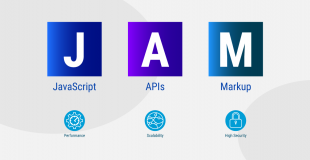The enterprise application is an enormous software system environment or platform that is meant to operate in a large and complex corporate environment. The major areas of enterprise application implementation are business, government, distributed and mission-critical. Well! To design such a rigorous application, it needs to be implemented in a framework that should be as robust as the enterprise application itself. Though there are many frameworks which can be used to implement enterprise application. But the Spring framework is one of the well-known frameworks that has become the most popular framework in the Java community.
The other additional features that Spring carries are its ability to support the modern-day requirements of Big Data, Security, JPA, Social Integration, etc. This has been just a small introduction of the Spring framework, but here in this blog, we outline a few wonderful benefits that will insist you explore the Spring framework for your enterprise application.
Lightweight
The Spring framework has the support for POJO application due to which there is no requirement for an EJB container product which is required in other frameworks. It also gives you the liberty to use a sturdy servlet container like Tomcat. Now, as already the framework supports POJO application so because of which it doesn’t have to receive an extra interface. All this makes it absolutely lightweight.
Ordered and Flexible
Another benefit is the organized aspect of the Spring framework which is supremely beneficial for the enterprise applications. This ordered and flexible aspect isn’t found in other frameworks as the number of packages and classes are sizeable here. So, as a developer of any enterprise, you have the full access to use the packages and classes which you require and can ignore the rest.
Transaction Management
Now enterprise applications have huge transactions; sometimes locally and sometimes globally. To your surprise, the Spring framework supports it and gives a wonderful transaction management interface. So, you can implement native transactions also with a single database or a global transaction using JTA.
Application Testing
Now another point which surely any Spring development company would admire is that you can easily test an application. Due to JavaBean style POJOs, the test data can be easily created and helps the developers to in fact develop some applications also. Having this feature really helps the developers to run tests.
Integration with other Frameworks
With the Spring framework, you don’t have to put a lot of effort while building enterprise applications. The framework gives you a platform to integrate the code with other frameworks rather than building new code for other technologies. The existing code can be integrated with ORM technologies, JEE, logging frameworks, Hibernate, REST or SOAP web services and of course with Big Data. Isn’t it very much compatible?
Modularity
The Spring framework is considered an adaptable framework and has many modules to provide like Spring Core, Spring MVC, Spring JDBC, Spring Transactions, etc. which all are very much useful and resourceful for resolving the complicated problems of the enterprise development. So, if you are running a Spring development company then you can offer many solutions to the enterprises and can enhance the development of the enterprises. There are other opinionated implementations called spring boot which helps in quicker development and spring cloud which helps in developing a microservices architecture.
Aspect-Oriented Programming
Now, this is something that is of significant importance when it comes to any Spring Development Company. The aspect-oriented programming or AOP is an important Spring component. The AOP works for cross-cutting application and AOP is used to separate aspects of the cross-cutting application. The major aspects that AOP separates of the cross-cutting application are declarative transactions, security, caching, etc. from the business logic.
So, to conclude it can be said that the Spring framework is a very well-designed and well-configured MVC framework that works excellently and way better and very efficient. Though other frameworks must have their special attributes, the Spring framework can be a great substitute for other frameworks like Struts. So, make use of this framework and effectively utilize it for enterprise application development.








